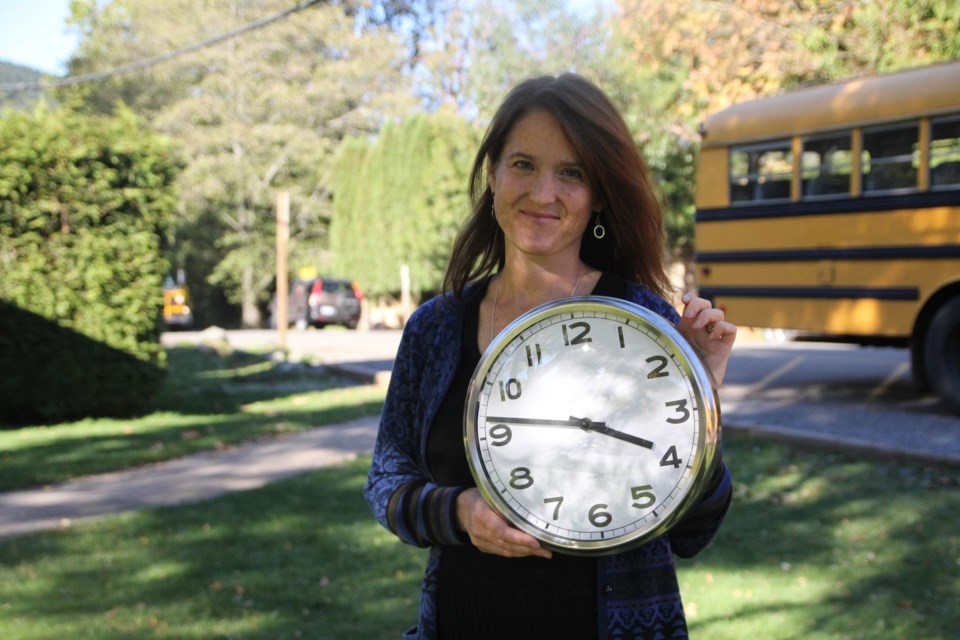You ask your kid to clean her room and the response is a blank stare or ignoring you completely. It is easy to assume that this response reflects defiance, lazyness or general disregard on your child’s behalf. Pediatric occupational therapist Anne Wilson offered parents at a BICS workshop last week another possible reason for the reaction: your child might genuinely not understand the concept of certain things needing to be kept in certain places.
This level of organization, as well as understanding that it requires certain chunks of time to get things done, or being able to assess players on a soccer field and plan out where to kick the ball based on that understanding, all fall under the category of “Executive Functioning” skills.
Wilson says she was excited to learn new strategies to help kids really learn Executive Functioning skills at a conference two years ago run by speech-pathologist Sarah Ward which inspired inspired her to attend a two-day workshop with Ward again last fall. Since returning, Wilson, has been meeting with teachers at Bowen Island schools to talk about the subject and provide strategies to help build their student’s executive functioning skills.
Wilson says that many typical strategies that adults use to get kids organized, like lists, are band-aid solutions on the problem.
“To those of us that makes the list, lists are helpful. But giving a kid a list is not teaching the child a skill to come up with a plan for their day, or to think of all the things that need to be done,” she says.
Wilson also stresses that these skills are developmental, and that children of the same age can have be at very different stages of this development.
“I wouldn’t say you need to catch anything early, when it comes to Executive Functioning. However, you can actually help these skills along without just waiting for development to do the job.”
Executive functioning skills, Wilson adds, are about much more than success in school, they are also important to help kids manage their emotions, expectations, and feel more confident in undertaking tasks – whatever those may be.
Wilson offered a number of straightforward strategies for helping their kids in this regard:
- To help your child have a feel for how time passes (so they can tell the difference between two-minutes and half an hour) and consequently learn to plan based on that, get an analog clock that you can take off the wall and mark up with a dry-erase marker. Use the marker to show what 15 minutes, or any chunk of time, looks like when you are trying to get your child out the door, to practice a musical instrument, etc.
- Use photos to help your child visual him or herself accomplishing tasks that lead towards an end result. For example, create a poster showing all the things that must be done in the morning – brushing teeth, putting on socks, eating breakfast, taking knapsack – before leaving the house in the morning. “The important thing is they can see themselves, you’re trying to create dress rehearsal for your child.”
- Use declarative language. For example, instead of saying, “I need you to help me with…” say, “I need a helper,” or a sweeper, or a cleaner or a fixer, etc.
- “As soon as you use the declarative, your starts to child see himself/herself doing the job in the immediate future.”
For more information about Executive Functioning, check out Sarah Ward’s website: http://efpractice.com/



